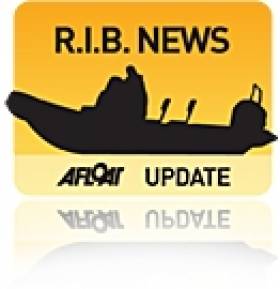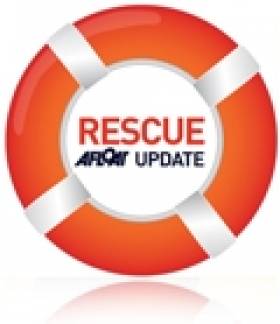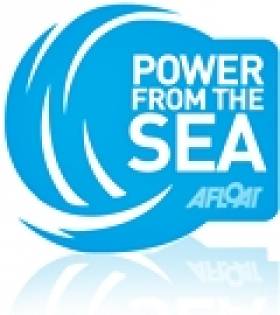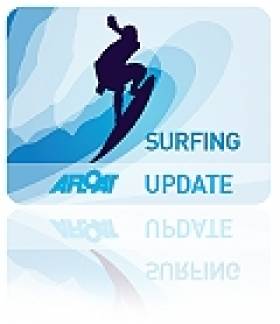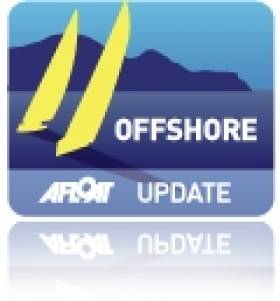Displaying items by tag: Cornwall
Police Focus On Kill Cord In Cornwall RIB Tragedy
#KillCord - Police in Cornwall investigating the deaths of a father and daughter in a speedboat accident off Padstow at the weekend are focusing on the boat's 'kill cord', according to BBC News.
BSkyB executive Nick Milligan and his eight-year-old daughter were struck by the family's runaway Cobra RIB after losing control of the vessel and being thrown overboard.
Four other family members in the water struck by the 8m-long boat were hospitalised, with the BBC reporting that Milligan's wife Victoria and four-year-old son Kit suffered "serious, potentially life-changing injuries".
Witnesses describe the speedboat circling to hit the family after turning sharply and throwing them into the water, then continuing to run around in circles before it was stopped by local waterskiing instructor Charlie Toogood who jumped on board.
Investigators are looking closely at the kill cord or safety lanyard, a device attached to a boat's throttle that should automatically cut engine power if the boat's pilot goes overboard.
A malfunctioning kill cord was identified in an incident in Cork Harbour last summer in which a RIB pilot lost an arm after he was thrown overboard and subsequently struck by his runaway vessel, as previously reported on Afloat.ie.
Months before, an angler died and another was treated for hypothermia after being thrown overboard and separated from their vessel, a result of neither man using the kill cord on their boat's engine.
Bronze Age Boat Is Afloat!
#BronzeAgeBoat - After nearly a year of hard work by a team of volunteers in Cornwall, a pioneering heritage project to recreate an ocean-going boat from the Bronze Age finally saw its results take to the water recently.
The 50ft long, five-tonne vessel was crafted out of two giant oak logs using the tools and methods that the first boat builders would have had to hand some 4,000 years ago.
“It has been incredible to see this whole project take shape in the Museum building over the past 11 months," said Andy Wyke of the National Maritime Museum Cornwall.
Volunteers led by shipwright Brian Cumby worked in collaboration with leading Bronze Age boat expert Prof Robert Van de Noort and his colleagues at the University of Exeter to produce the finished article, which was successfully paddled in Falmouth Harbour much to everyone's delight and relief.
“There have been doubters, professionally, who questioned the feasibility of this vessel crossing the seas," said Prof Van de Noort. "This project has proven that it was possible.”
The boat is now on display at the museum's pontoon in Falmouth.
Wreckage Found in Search for Missing Yachtswoman Off Cornwall
#NEWS UPDATE - The Independent reports that the wreckage of a vessel has been found in the search for a missing yachtswoman off the Devon and Cornwall coast.
As previously reported on Afloat.ie, 65-year-old Ona Unwin left Falmouth in Cornwall on Friday in a yacht purchased just the day before.
She was last reported in Mousehole, near Penzance, on Saturday evening after rounding the bottom of the Cornish coast. Relatives raised the alarm on Sunday after she failed to return home to Bideford in Devon.
Devon and Cornwall Police were with members of Unwin's family yesterday afternoon when air and sea search crews discovered the wreckage near Sennan Cove in Cornwall which is believed to be that of her 31-foot Seagair yacht.
No evidence of a body was seen on board the wreck, and a police spokesman said investigations are ongoing.
Meanwhile, it has emerged that Unwin is thought to have dismissed safety warnings about "treacherous" weather in the region over the weekend when she set out.
"I was amazed when I found out that she had set sail," said Jerry Hobkirk, proprietor of Falmouth Yacht Brokers which sold her the yacht last Thursday. "If I had known, we would have stopped her."
Heart Attack Passenger Airlifted from Cruise Liner
#RESCUE - A cruise passenger en route from Ireland to France has been airlifted to hospital by Royal Navy rescue helicopter, according to BBC News.
RNAS Culdrose in Cornwall yesterday dispatched its long-range rescue chopper to retrieve the 83-year-old man who suffered a heart attack on board the cruise liner Marco Polo, which recently left port in Cork.
The airlift was described as "tricky" due to the storm-force weather conditions at sea some 100 miles from the Cornish coast.
Both the man and his wife were transpored to the Royal Cornwall Hospital in Truro for treatment. There is as yet no news as to his condition.
Cork Company Set to Deploy Energy Device at Cornwall's Wave Hub
#POWER FROM THE SEA - An Irish firm has landed a contract to provide a wave device for a new offshore energy test site in Cornwall, Siliconrepublic reports.
Ocean Energy, which is based in Cork, will deploy its first full-scale wave energy device at Wave Hub - described as an 'electrical socket' for testing wave power technology - off Hayle in north Cornwall by the end of the year.
The technology behind the buoy-type device, which will cost €9 million, has been developed over the past three years via a quarter-scale prototype in Galway Bay.
Using the principle of the oscillating water column, the device works by channeling water through a submerged chamber that forces air through a turbine above the surface.
The full-scale unit is expected to generate enough electricity to power as many as 1,200 homes.
Siliconrepublic has more on the story HERE.
Cornish Surfer Rides Ireland's Record Biggest Wave
#SURFING - British surfer Jayce Robinson wasn't about to let the largest wave ever recorded off Ireland's shores go by without giving it a shot.
And as Sky News Online reports, he was captured doing exactly that on Tuesday afternoon.
The Cornish surfing pro told the website: "It was definitely the biggest barrell I've ever surfed.
"I was a little nervous but I didn't have time to think about it - it's almost like a car crash, you don't know what's happening."
Robinson rode the giant wave for 20 seconds before the lip crashed down and knocked him off his board.
His surfing partner Lyndon Wake, who towed him to the swell at Mullaghmore Head, said: "It's always a worst case scenario when your tow partner wipes out. Lucky he managed to come out the other side OK."
As previously reported on Afloat.ie, storm force winds off the coast of Donegal produced monster rollers of over 20 metres (over 60 feet) in height detected in Donegal Bay.
Mullaghmore Head will once again welcome the world's top big wave surfers for the second annual Tow-In Surf Session in the New Year.
Puma Finishes Transatlantic Race
"We entered the race with zero expectations, just like the other IRC handicap racing we've done this year," Read said. "We wanted to learn the boat and the crew. Now, here we are in the position of possibly winning a race that we didn't expect to win. We're pleasantly shocked. We didn't break anything, the sails held up, the team is certainly coming together, and there's not a single negative to this race. It was a great experience."
The race was the first test for the PUMA team and new Volvo Open 70 racing yacht. The 11-member crew departed Newport, R.I., on Sunday, July 3, alongside five other boats in IRC Class 1 in the final start of the race. Rambler 100 (skipper George David) earned line honors after finishing on Sunday, July 10, at 16:08 UTC. Also in the class: ICAP Leopard (Clarke Murphy); Beau Geste (Karl Kwok); Sojana (Peter Harrison); and Vanquish (USMMA – All American Offshore Team). Overall, 26 boats ranging from 40 to 289 feet in length entered the race.
PUMA's Mar Mostro reached a maximum speed of just over 30 knots early in the race, traveling 551 nautical miles on Day 3. By Friday, light air slowed the pace through the line.
"The finish was excruciating," Read said. "We approached The Lizard, knowing we had to get there quick because the current was about to change and go against us. As we entered the English Channel, the breeze was dying steadily to the point where the current did change. Literally, when the race committee said we were finished, we were stopped and about to throw the anchor as we would have been going backwards with the current. A bizarre twist to the finish.
"But, this is boat racing," Read continued. "It's great training because you have to be ready for the extreme highs and lows, and that goes for weather as well. To finish in a complete drift off is another lesson learned – be prepared for everything."
Read and crew are not stopping in the U.K., but are already heading south to the Canary Islands. The team's summer training headquarters becomes the Puerto Calero Marina in Lanzarote at the end of this week. From there, the crew will head to the race start location of Alicante, Spain, in late September. Next racing on the docket is the Volvo Ocean Race with Leg 1 beginning November 5.
"The boat doesn't have a list of any real problems," Read said looking ahead. "But, we can't sit back and think 'we're done,' or that we're great. We know we have to get better, and an experience like this helps us sort out a lot of little things that we can get better at. If you don't improve every day, then you're going backwards because everybody else is improving."


























